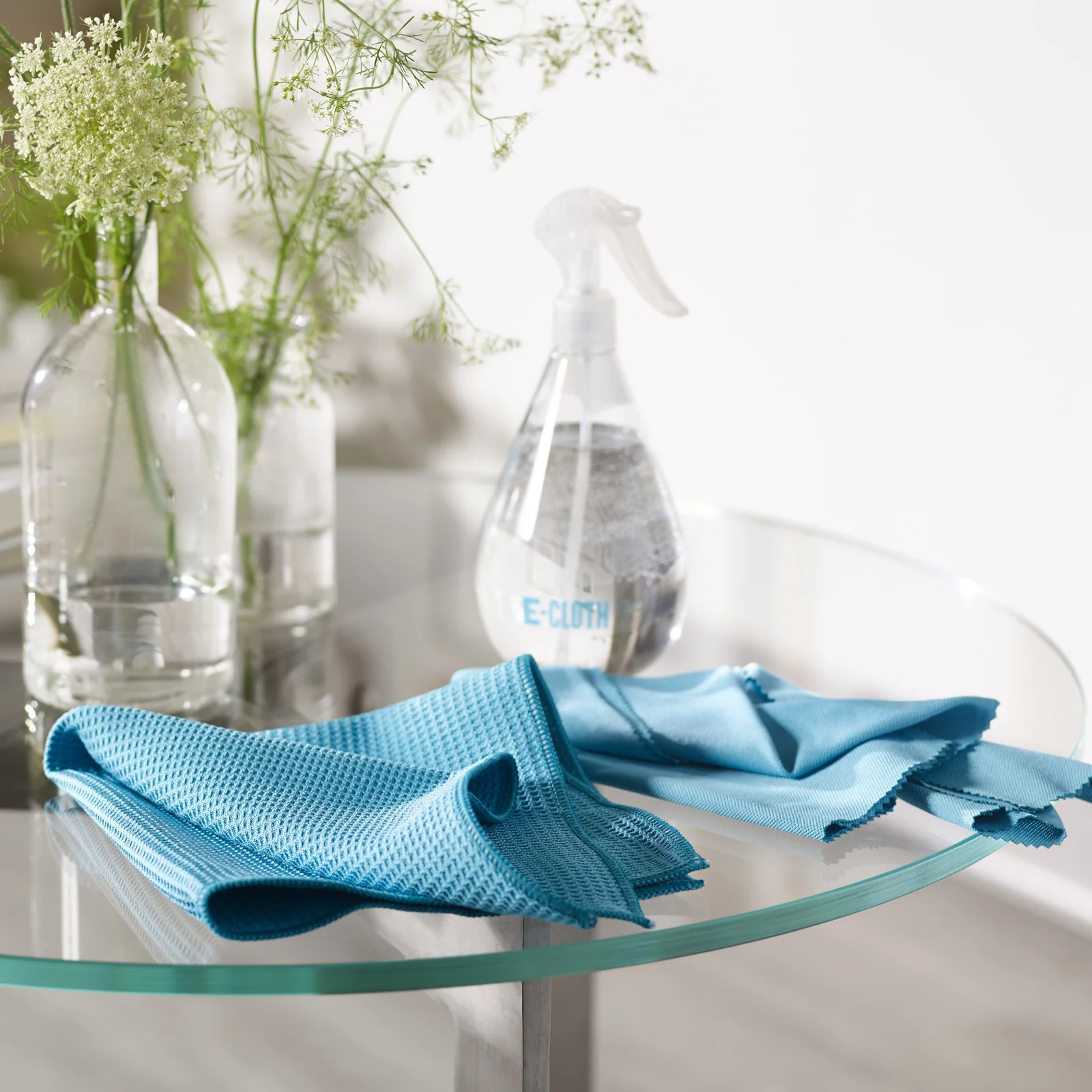Table of content:
How Often You Should Clean Your Duvets
Consequences of Skipping Duvets Cleaning
DIY Methods to Clean Your Duvets
Keeping your duvet clean is essential for maintaining a fresh, comfortable, and healthy sleep environment. While it’s easy to overlook, duvets can accumulate oils, dust, and allergens over time, which can impact both their longevity and your well-being. The ideal cleaning frequency depends on factors like how often you use your duvet, whether you use a cover, and if anyone in your household has allergies. Regular care not only helps prevent unwanted odors and dust mites but also preserves the quality and comfort of your bedding. By following expert recommendations and considering your personal needs, you can ensure your duvet stays inviting and lasts for years to come.

A Clean You Can See
Our high-performance microfiber products simplify cleaning, making it quick, easy, and effective, so you can enjoy visible results without the fuss. No streaks, just results.
How Often You Should Clean Your Duvets
Frequency Recommendations
- General Rule: Most experts suggest cleaning your duvet about every six months. This frequency helps remove accumulated body oils, sweat, and dust that can settle in the filling over time.
- Usage and Cover Matter: If you consistently use a duvet cover, you can protect the duvet and extend the time between deep cleans. However, if the cover isn’t washed regularly or if you sleep without one, you might need to clean the duvet more often.
- Allergy Considerations: For households with allergy sufferers, a six-month cycle can help reduce dust mite buildup. In some cases, if you have sensitive airways or allergies, opting for a cleaning every three months might be beneficial, though checking the care label is key.
- Moisture and Environment: Humidity can make a duvet more prone to odor and mold if it isn’t aired out properly. In a damp environment, consider cleaning or airing out your duvet more frequently.
- Usage Frequency: Heavy use, such as in colder months when you’re bundled up every night, can accelerate the accumulation of sweat and oils. Lighter or seasonal use may allow for less frequent deep cleaning.
Why This Frequency?
- Accumulation of Oils and Dirt: Over time, natural body oils, sweat, and environmental dust can embed themselves in the fabric and filling of your duvet. Regular cleaning helps keep these deposits in check.
- Protection of Fill Material: Frequent, proper cleaning helps maintain the loft and integrity of the filling. This is especially important in duvets filled with down or other natural materials that benefit from periodic airing and gentle cleaning.
- Health and Comfort: Keeping your duvet fresh not only contributes to a more pleasant sleep environment but also reduces potential triggers for allergies and respiratory issues.
- Longevity: Regularly cleaning and airing out your duvet as recommended by the manufacturer can extend its lifespan, ensuring that you enjoy its comfort for a longer period over the years.
Streak-Free Wherever You Need It
E-Cloth is committed to delivering a clean you can see—effortlessly erasing messes with just water for a spotless shine, free of streaks and added chemicals.

Consequences of Skipping Duvets Cleaning
Consequences of Skipping Duvets Cleaning
- Unwanted Odors Settle In: Duvets are like giant sponges for sweat, body oils, and the occasional midnight snack crumb. When you skip cleaning, these build up and create a not-so-fresh aroma that no amount of linen spray can mask.
- Dust Mites Make Themselves at Home: Dust mites are microscopic critters that thrive in warm, humid environments—like your unwashed duvet. While you can’t see them, you might notice more sneezing, itchy eyes, or a stuffy nose. Regular cleaning helps keep their numbers in check, making your bed a little less crowded.
- Stains Become Permanent Residents: Spills, sweat, and other mystery marks don’t just disappear on their own. The longer they sit, the harder they are to remove. Over time, your duvet can start to look dingy and worn, even if it’s structurally sound.
- Fabric Breaks Down Faster: Dirt and oils can weaken duvet fibers, causing them to break down and lose their fluff. This means your cozy comforter could turn lumpy or flat long before its time, and nobody wants a sad, pancake-flat duvet.
- Allergens Accumulate: Even if you’re not sensitive, dust, pollen, and pet dander can collect in your duvet. This can make your bed less comfortable and more irritating, especially for anyone with allergies.
- General “Ick” Factor: Let’s be real—knowing your duvet hasn’t been cleaned in ages can make bedtime feel less relaxing. A clean duvet just feels better, both physically and mentally.
DIY Methods to Clean Your Duvets
.svg)
Mild Detergent and Cold Water
Mix a small amount of mild detergent with cold water in a basin. Gently submerge the duvet and swish it around to loosen dirt. Rinse thoroughly with cold water and press out excess water without wringing. Lay flat or hang to air dry completely. This gentle method helps preserve the fabric and filling.
.svg)
Baking Soda and White Vinegar
Sprinkle baking soda over the duvet and let it sit for 30 minutes to absorb odors. Mix equal parts white vinegar and water in a spray bottle, lightly mist the duvet, and blot with a clean cloth. Allow to air dry completely. This method refreshes and deodorizes without harsh chemicals.
.svg)
Lemon Juice and Sunlight
Squeeze fresh lemon juice onto any stains on the duvet, then place the duvet in direct sunlight for several hours. The natural bleaching action of lemon juice combined with sunlight helps lift stains and brighten the fabric without harsh chemicals.
.svg)
Oxygen Bleach and Lukewarm Water
Dissolve oxygen bleach in lukewarm water according to package instructions. Soak the duvet in the solution for 30 minutes, then rinse thoroughly with clean water. This method gently lifts stains and brightens fabric without harsh chemicals.
.svg)
Insufficient Deep Cleaning
Using only mild detergent and cold water may not remove deep-seated dirt, oils, or allergens from duvets, leading to inadequate cleaning and potential buildup of residues that affect freshness and hygiene.
.svg)
Residual Odor Retention
Baking soda and white vinegar may not fully eliminate deep-set odors in duvets, leading to residual smells even after cleaning. This method can be less effective on strong or persistent odors compared to professional or specialized cleaning products.
.svg)
Allergen Removal Limitations
Lemon juice and sunlight may not fully remove allergens like dust mites or pet dander from duvets, leaving residues that can trigger allergies. This method lacks the deep cleaning needed for effective allergen elimination.
.svg)
Improper Stain Dissolution
The stain did not dissolve properly because oxygen bleach requires thorough mixing and enough time to work. Inadequate dissolution or too short soaking can leave stains behind, making the cleaning method ineffective.
Ready for an Easier Way to Clean?
Skip the mixing, spraying, and scrubbing. With E-Cloth, you get a streak-free shine using just water—no added chemicals, no hassle. Make every window sparkle the simple way.
Explore other Articles
Headphones
Learn how often to clean your headphones for optimal sound and hygiene. Simple tips to keep them fresh and lasting longer.
Bookshelves
Discover the ideal frequency to clean your bookshelves for a dust-free, organized, and fresh home library.
Jeans
Discover the ideal frequency to clean your jeans for lasting style, comfort, and fabric care. Keep them fresh and durable!
Range hood filter
Learn how often to clean your range hood filter for optimal kitchen air quality and appliance efficiency. Keep it fresh and safe!
Washing machine
Learn how often to clean your washing machine for optimal performance and freshness. Keep your laundry fresh and your machine efficient!
Garage floors
Discover the ideal frequency for cleaning your garage floors to keep them spotless and well-maintained year-round.
Experience Real Cleaning
A Clean You Can See
Experience Real Cleaning


